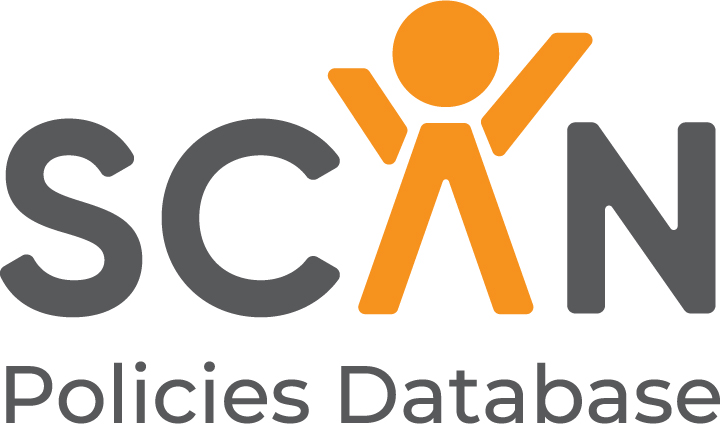Introduction to the SCAN Policies Database
The State Child Abuse and Neglect (SCAN) Policies Database compiles data on the definitions and policies that states use in their surveillance of child maltreatment, along with data on associated risk and protective factors. The SCAN Policies Database is funded by the Office of Planning, Research, and Evaluation in collaboration with the Children’s Bureau in the Administration for Children and Families at the U.S. Department of Health and Human Services. The project team is led by Mathematica in partnership with Child Trends.
The Office of Planning, Research, and Evaluation
The Office of Planning, Research, and Evaluation (OPRE) is an office within the Administration for Children & Families (ACF), a division of the U.S. Department of Health & Human Services (HHS). ACF promotes the economic and social well-being of families, children, individuals, and communities. OPRE studies ACF programs and the populations they serve through rigorous research and evaluation projects. These include evaluations of existing programs, evaluations of innovative approaches to helping low-income children and families, research syntheses, and descriptive and exploratory studies.
Mathematica
Mathematica is a research and data analytics consultancy driven by a mission to improve well-being for people and communities around the world. We innovate at the intersection of data science, social science, and technology to translate big questions into deep insights for public- and private-sector partners who count on our expertise and our commitment to equity. Collaborating closely with a wide range of decisionmakers and changemakers in health, human services, and international development, we’re reimagining the way the world collects, analyzes, and applies data to solve urgent, global challenges.
Background
Although federal law is the foundation of the child welfare system, states drive much of the structure of their own systems. The Child Abuse Prevention and Treatment Act (CAPTA) (42 U.S.C.A. § 5106g), as amended in 2010, identifies certain acts or behaviors as child maltreatment. States must comply with the broader CAPTA definitions, but within those parameters, states have their own legal definitions. State laws—and the policies states set to enforce these laws—have different definitions of child abuse and neglect and different policies for reporting and responding to child maltreatment.
Purpose
The project’s purpose is to maintain, enhance, and update the SCAN Policies Database by continuing to review and compile information about selected definitions and policies of child abuse and neglect in all 50 states, the District of Columbia, and the Commonwealth of Puerto Rico. The project aims to sustain and improve the SCAN Policies Database’s ability to support researchers, analysts, policymakers, child welfare agencies, and others in broadening their understanding of how differences in states’ definitions and policies may influence rates of child maltreatment. A primary benefit of these data is to allow researchers to link the analytic files to other data sources, such as the National Child Abuse and Neglect Data System (NCANDS), the Adoption and Foster Care Analysis and Reporting System (AFCARS), other federal and state administrative data, and survey data. When data from the SCAN Policies Database are linked with other data sources, the linked data can be used to answer important questions about how variations in states’ definitions and policies are associated with the incidence of child maltreatment, the child welfare system response, and ultimately, the safety and well-being of children.
Project Leadership
Office of Planning, Research, and Evaluation Administration for Children and Families
Christine Fortunato, Contracting Officer’s Representative
Mary Mueggenborg, Contracting Officer’s Representative
Mathematica
Elizabeth Weigensberg, Project Director
Milena Raketic, Deputy Project Director
Child Trends
Sarah Catherine Williams, Subcontractor Technical Lead
Contact us: For general inquiries and data users who access the data from this website can submit a request to SCANPoliciesDatabase@mathematica-mpr.com
